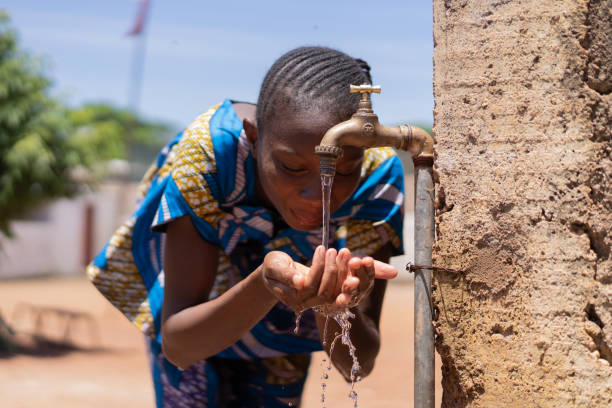
Access to water and safety are fundamental human rights that should never be compromised, especially for women. Unfortunately, in many parts of the world, women are forced to choose between these two essential needs.
Women bear the primary responsibility for collecting water in their households, often facing disproportionate burdens in many societies. Scarce or contaminated water sources force women and girls to travel long distances, sometimes in unsafe conditions, jeopardizing their physical well-being. This denies them educational and economic opportunities, further perpetuating gender inequalities.
The lack of safe and secure environments poses significant threats to women’s safety and dignity. Women encounter violence, harassment, and discrimination while accessing water sources or using inadequate sanitation facilities. Water conflicts in certain areas exacerbate social tensions, rendering women and girls even more vulnerable to harm.
A vivid example comes from a female head of household and her 15-year-old daughter in Namuwongo, a Kampala suburb. During the day, they can access a nearby NWSC PSP (public standpipe). However, due to the risks of violence associated with venturing outside at night, they are limited to using the stored water in their 1 jerrycan. This scenario is common, as more than half of women over 15 in these suburbs report experiencing violence in public settings during their lifetimes.
The National Water and Sewerage Corporation (NWSC) for one, is actively working to improve access to household and communal sanitation and water through its Pro-Poor initiative. However, this woman’s story highlights that improved water facilities alone cannot address safety concerns when gender-based violence in public spaces inhibits women’s use of these resources. Lower-income households relying on communal facilities are particularly affected.
The COVID-19 lockdown period saw a significant increase in violence against women, accentuating the link between gender-based violence (GBV), reduced access to water, and sanitation. A World Bank study revealed that women in 15 African countries faced heightened harassment and violence while collecting water, with many reporting increases in intimate partner violence, sexual violence, and early/forced marriage.
GBV not only hinders access to water and sanitation but also impacts the productivity and retention of female staff at work. An IFC study in Fiji found that high rates of domestic and sexual violence resulted in substantial lost staff time and reduced productivity, equivalent to nearly ten days of work per employee each year.
Addressing these challenges requires a multifaceted approach. Governments, international organizations, and communities must collaborate to ensure access to clean water and sanitation facilities, particularly in marginalized areas. Infrastructure development, including wells, water treatment plants, and accessible sanitation facilities, can alleviate burdens and enhance safety. Investing in education and empowerment programs for women and girls is vital to breaking the cycle of poverty and providing opportunities for personal and economic growth.
To overcome these challenges, fostering gender equality and challenging harmful social norms and practices is essential. Promoting women’s rights, enabling their participation in decision-making processes related to water and sanitation, and raising awareness about gender equality’s importance in achieving sustainable development goals are crucial steps forward.
Ensuring access to water and safety is a collective responsibility. No woman or girl should be forced to choose between these fundamental needs. By recognizing and addressing the interconnected challenges of water access and safety, we can strive for a more equitable and just world. Collaboration across sectors is imperative, and eradicating GBV should be a top priority. Together, we can work towards a future where stories like the one from Namuwongo become a thing of the past.


